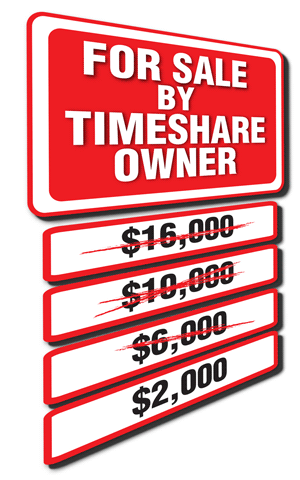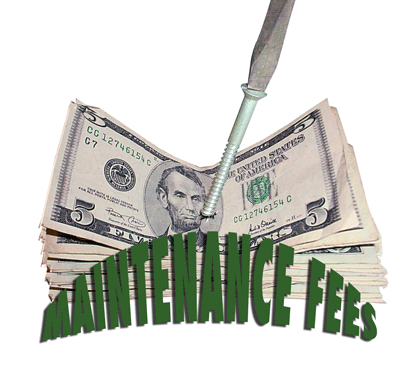Are Timeshares Worth It? Are they a scam? Or are they a good investment?
Are you considering buying a vacation property? Or are you trying to get out of a fractional ownership property that you either no longer use or can no longer afford?
We’ve experienced the buying, using, and trading of timeshares for more than 25 years. Although we’ve never been an owner, we’ve observed a master vacationer—Annette’s dad Syl.
Over the past 25 years, he has accumulated 6 different timeshares. He owns actual weeks at properties and timeshare points. We’ve worked with him, trading, banking, and negotiating for alternative weeks at other properties.
Getting the most out of his timeshares has been a fun game for Syl. But now that he’s older, he’s been selling off or turning in his properties. We’ve been learning from him in this process also.
TABLE OF CONTENTS
Timeshares have also been called fractional ownership.
Imagine you want to buy a vacation home in a resort area. The cost may be prohibitive. Let’s say the house costs $350,000 — and that’s well beyond your budget.
But, what if you had a friend who wanted to share the cost and the use of that vacation home with you? You could create a partnership and cut your share of the cost in half.
This is exactly the premise of timeshare ownership. But instead of a free-standing home, you own a furnished apartment for one week each year. And that luxury apartment is set in the midst of a resort setting.
A management company is responsible to manage the property and owners. And to also sell more timeshares and manage the property.
Example Scenario
- A timeshare resort has 100 units,
- Each unit gets sold for every week of the year,
- There are 5200 owners.
- Assume that each owner purchased their timeshare week for $20,000
- Given this scenario, the management company would earn more than $104 million dollars.
- Plus an average annual maintenance fee from each owner
What Are Exchange Groups
Most timeshares are associated with an “exchange group.” These companies charge a modest annual fee for membership. As a member, you can swap your timeshare week for another in a different location.
According to Syl, Annette’s frugal father, “This is where having a timeshare gets to be fun.” He “banked” a week from one of the more valuable timeshares for two or three weeks in future years from the exchange.
Banking Your Timeshare Week means that the exchange company will try to rent it to someone else. They make money and you receive more options.
There are no fees associated with banking a week. But, when you redeem your week at another location—it could cost you $100 to $300.
The concept of timeshares has caught on in the past 30 years. Initially, we would receive invitations to spend a “free” fun-filled weekend at a resort. Their flyers would offer “gifts” like fancy electronic gizmos or cash rewards. All in exchange for sitting through a sales presentation (usually very high pressured).
But times have changed, and the industry has matured.
Things have changed with the entrance of several reputable resort companies into the market. The sales hype has decreased and the risks of ownership have been greatly reduced.
Timeshare sales have increased for the past 8 years according to the according to the American Resort Development Association (ARDA). Total sales increased from 9.2 billion in 2016 to 9.6 billion in 2017. Sales have increased by an average of 6 percent per year since 2013.
There are more than1,570 timeshare resorts in the U.S. With more than 205,100 units that can be sold. And thousands more worldwide.
The ARDA calculated that the average price paid for a timeshare is around $22,000.
Timeshare weeks and timeshare points are owned by more than 9.2 million U.S. households.
Currently, more than 3 million Americans own timeshares. The industry predicts that another 22 million potential owners exist. And they are working feverishly to woo them into buying.
In the past 10 years, some major resort companies have entered the timeshare space. This includes hospitality leaders like:
- Marriott
- Hyatt
- Disney
- Hilton
- Four Seasons
- Ritz-Carlton
- Starwood
- Wyndham
Because of their influence, sales tactics have changed and pricing has become more transparent.
To properly evaluate the cost of a timeshare, you need a baseline figure.
Let’s assume a hotel stay costs $300 per night. This would allow the option of a couple of rooms at a less expensive hotel. Of for an inexpensive suite with a kitchenette for those of you who like to prepare your own meals on vacation.
Given this assumption, let’s calculate the cost of vacationing over a 10 year period.
One Week at A Hotel Each Year
Our baseline includes taking a one-week vacation every year for 10 years. And using this type of hotel room as your source for lodging each year.
This baseline calculation would have you spending $2,100 per year times 10 years. Your total for lodging would be $21,000.
But prices always go up. So allowing for 4 percent inflation, your total out of pocket expense would be close to $26,000 for 10 years.
Our baseline for comparison is an annual cost of $2600.
One Week at a Timeshare Each Year
So what would an average cost be for a one-bedroom timeshare at a brand-name resort during a prime summer week?
Let’s figure $20,000 cost for the unit — although the industry average price for a new timeshare is about $22,000. We’ll figure that there was a discount or some good negotiating that went on to get the price down a little.
You’ll need to add an annual maintenance fee. And this will most likely go up each year. In 2017 the average was $880.
Over a 10-year period, the maintenance fees alone would be $8800. But with inflation at 4 percent, it would be more like $13,000.
Combine the price of purchasing the timeshare with maintenance fees and you’re looking at a total of $33,000 over a 10 year period. That’s an annual cost of $3300.
The Hotel vs Timeshare Cost Comparison Bottom Line
So you could spend $21000 for a hotel vacation for 10 years. Or $33,000 for a timeshare vacation for 10 years. Is a timeshare for 10 years worth 64 percent more?
Sure, the accommodations will probably be more spacious. And maybe a little more luxurious than a 4-star hotel.
But will you have received 64 percent more pleasure and relaxation?
We don’t think that spending more money necessarily results in greater vacation enjoyment.
But to be honest, there are some good things about timeshares.
But there are also some bad things and some really ugly things. Here is our breakdown:

1) Deals Abound
At any given time, there are more than 4,000 pre-owned timeshares listed for sale in timeshare magazines and on eBay and Timeshare Users Group (www.tug2.com) websites. You’ll find prices from 50 to 90 percent below “retail.”
If you decide that a timeshare fits your vacation lifestyle, do your research, shop carefully and you can pick up a deal. Make sure you know if you are purchasing a specific week or a floating one.
2) Banking Your Week
If you can’t use your week one year, you can save it and possibly earn more weeks. One subscriber did this for two years and exchanged his banked weeks for a three-week European tour through France, Austria, and Switzerland.
3) They Have Nicer Amenities
Most timeshares are more spacious and have higher quality amenities than standard hotel rooms.
They include features such as BlueRay players, large format TVs and fully equipped kitchens with full-size refrigerators. There are often daily activities for kids.
They may have a rec room with movies and board games that you can check out. And we’ve seen many with recreational activities planned for adults and families.
However, some timeshares outside the U.S. aren’t as nice. We’ve heard of folks trading for timeshares in Ireland and France where the accommodations either reminded them of life in the 1800’s or felt like they were living in a cracker box.
4) Last Call
If you are a member of the RCI exchange program, you can scoop up some great last-minute deals. If a unit is available and you call up to 45 days before arrival, you can get your lodgings for as little as $99 to $199 for the week.
We’ve observed some of the following downsides of timeshares.
1) High-pressure Sales
Some sharks out there will do everything in their power to get you to buy — even if a timeshare isn’t right for your family. They’ll promise you almost anything to make the sale.
Fortunately, with more professional organizations — like Marriott, Hilton, and Disney moving in, things are changing. The high-pressure sales and bait-and-switch tactics are becoming a thing of the past.
2) Maintenance Fees
Everyone we spoke to said maintenance fees were regularly increasing — sometimes by significant amounts.
3) Floating Weeks
In the past, timeshare purchasers bought a specific week and a specific unit.
In many cases, that has now changed to a floating week and a similar unit.
Some groups still offer fixed weeks for a premium price.
The problem with floating weeks is that, depending on demand, you may not get the week you want — especially during peak vacation times. If you want a summer week in California, you’d better start booking it a year in advance.
4) Changing Needs and Prime-Time Booking
Our friends Joe and Laura owned a timeshare for about eight years. When their kids were young, they were able to go to some fantastic places, off-season, for wonderful weeks of relaxation.
But when their kids became school-age, their options for vacation weeks changed drastically. They now had to find weeks during the higher demand times.
This was frustrating, and their choices were often very limited.
And if they wanted to do a church-camp vacation or take a missions trip, they felt financially stuck. That was because they would still have to pay the maintenance fee in addition to their other vacation expenses.
They finally became so disenchanted with the restriction and effort it took to use their week that they sold the unit for a loss.
Every Other Year Options. On the positive side, some timeshares now offer every-other-year usage. You purchase the unit to use in either odd or even years — this alternative usually costs less to buy, and the maintenance fees are cut in half.
Not a bad choice if you like to have the freedom of other vacation options.
5) On Paper Versus In-Person
Before you buy, you really should visit the facility. Slick brochures and websites can’t take the place of experiencing the actual merchandise.
Is the property well maintained? What are other owners saying?
If you are going to spend thousands of dollars, you’ve got to know what you are really buying.
6) Getting Out of Your TimeShare

Since the market is flooded with unwanted timeshares, it’s difficult to sell them for a decent price.
One of the best ways to sell your timeshare is to make up a flyer with all the details: the number of bedrooms, week assigned and a selling price, and take it with you to the facility during your annual visit.
Be bold and daring; talk with people around the pool and clubhouse.
You’ll probably find a prospective buyer who’s interested in purchasing a unit below the going rate. If you’re lucky, you’ll be able to sell for a much higher price than can be had through the various Web sites and magazines.
Timeshare Exit Companies
Because there are a large number of people who want to abandon their timeshares, a new industry has been created. Companies that help you get out of your timeshare contract.
They usually charge you a fee for their services. But they will work to get your contract nullified and either sell the unit or give it back to the owner.
Here are two of the timeshare exit groups that we know of:
Timeshare Exit Team is also known as Reed Hein and Associates has a 4.7-star A+ Rating with the Better Business Bureau.
- Trust Pilot: they have a 7.2 out of 10 approval rating from Trustpilot – with more than 800 reviews.
- Yelp: they have 12 reviews and a 2.5 out of 5-star rating
- According to their website, they have 35 locations across the U.S. They are also endorsed by Financial Expert and Radio Personality Dave Ramsey.
This timeshare exit group has a 4.8 out of 5 on Google Reviews with 33 people responding.
- BBB: A+ Rating and 5 out of 5 stars with the Better Business Bureau with 126 reviews.
- FTC: In an article titled, “Timeshare resellers & quick-money promises” several readers commented or asked questions about Newton Group Transfers.
- We searched Yelp, TrustPilot and Google+ for reviews and didn’t find any.
- If you want to speak to someone about your situation call: 888-344-9765
- Get The Newton Group’s free Consumers Guide to Timeshares
Surrender to the Company you Purchased from.
Another more popular option is to contact the home resort owner services department. Many of the more reputable timeshare companies have set up surrender departments where owners can turn in their property. There is usually a fee, but the process is very streamlined.
Just be careful when you try to surrender to your originating company – they have been known to upsell people who want to surrender. They’ll talk you through other options – it can be a pressured situation.
Proceed with Caution and Lots of Research
Please do careful and thorough research before agreeing to work with any of these companies. Remember that a company’s mission may be carried out by flawed individuals. So if something doesn’t seem right, ask for a supervisor. Keep politely and firmly pushing for what you want.
When an offer is made, get in writing. Take your time in evaluating their offer and making a final decision.
Donate Your Timeshare
Another way to walk away is to donate your timeshare to a charity. DonateForACause.org is a website that helps with the donation process. They will pay most maintenance fees until the donated unit sells. Afterward, you’ll receive a tax deduction for the sale amount. Read the fine print and don’t rush.
Just remember that if you have financed your timeshare, even though you have donated it, you’re still responsible for paying off the loan.
Read more about donating your timeshare in this Bankrate article.
What about your kids? If you die and a timeshare is part of your estate, are your kids going to want to pay the maintenance fee? Is it going to be a blessing or a burden?

1) Ever-Increasing Fees
According to Timeshare industry watchdogs, maintenance fees increase between 4 percent and 8 percent per year. Not paying your maintenance fee may enter your mind, but this can result in repossession of your timeshare and a bad mark on your credit report.
Fighting unusually high rate hikes can be time-consuming and most likely ineffective. Many timeshares plan on remodeling every 10 years. Find out when the last remodel was and plan on a jump in maintenance fees when the tenth year approaches.
2) Liars, Brokers, and Other Scams
Timeshare companies make additional revenue by selling their mailing and email lists. When Joe and Laura wanted to sell their timeshare, they happened to receive a postcard inviting them to a meeting with a professional who said he could help them sell their unit. It turned out to be a scam.
This “professional” really wanted to get together a group of disgruntled owners and make them feel hopeless. At that point, he would encourage them to give him their timeshares and some cash in exchange for his RV vacation package. He called it “lower fees and more option vacations.” We call it unethical.
Many other brokers will tell you they can sell your timeshare for an upfront fee of $500. Don’t do it. Never pay up front.
Some ethical real estate brokers operate on a fee after the sale, but you’ll have to search carefully; they are hard to find.
According to Investopedia.com, an investment is, “an asset or item acquired with the goal of generating income or appreciation. In an economic sense, an investment is the purchase of goods that are not consumed today but are used in the future to create wealth.
We define a good investment as something that has a greater likelihood of increasing in value over time. If you buy a house, over time it should go up in value. The same is true of stocks, businesses, and rare coins.
While some timeshares may be sold for more than a buyer paid, this is not usually the case. Most timeshares sell for much less than the purchase price.
Additionally, if you factor in the maintenance fees, there is never a time where you will receive more than your purchase price and fees.
You should never look at a timeshare as an investment. It is an expense. It should be looked at as the cost of recreation or a vacation.
So if we had to answer the question under oath, we would respond, “Timeshares are a bad investment, but could be a good way to vacation.“
Just remember, timeshares are easy to buy, but can be a nightmare to get rid of.
So are timeshares worth it?
Vacations should be part of your regular monthly savings in your budget (read “Great Vacations with Limited Funds” ). If you’re going to buy a timeshare, never pay retail and NEVER finance it. Also, make the annual maintenance fee part of your regular savings program.
There are so many other great ways to have fun, memorable and inexpensive vacations that at this point in our lives, timeshares are not for us. But if the timeshare lifestyle would fit your family and you can purchase with cash and have time to play the exchange game, a timeshare could be worth it for you — provided you are able to avoid the bad and the ugly.
Related Article: Retail Arbitrage: How to Make a Living Bargain Hunting



Do you have any suggestions for getting rid of a timeshare? We have talked to someone at buyatimeshare.com, but no one else at this time.
I welcome any advice you can give.
Thank you!
Try NewtonGroup transfers https://www.newtongrouptransfers.com/?urlSource=moneysmart. We have a friend who works at Newton Group.
or TimeShare Exit Team https://timeshareexitteam.com/ Dave Ramsey recommends these guys (but he’s probably paid to do it.)